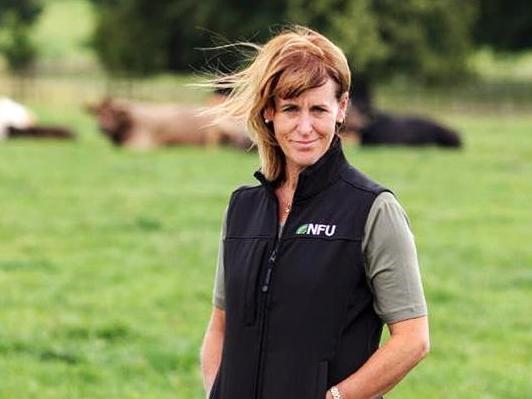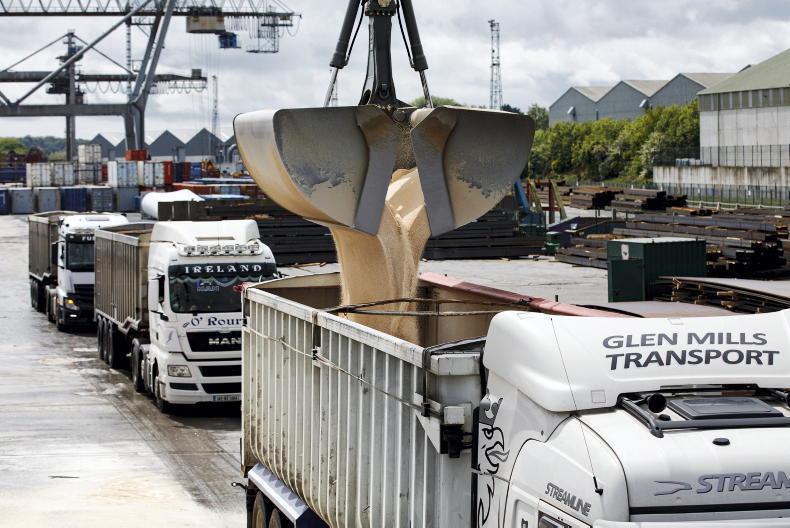Food companies sign up to soy manifesto
A number of major food companies, including all the major retailers and various food processors, have signed up to a UK soy manifesto, committing them by 2025 to source soya that has been grown without deforestation or removal of native vegetation.
In 2020, the UK consumed 3.5Mt of soya, which is contributing to pressure on biodiverse landscapes in South America. Data from 2017 suggests that UK consumption of soy led to an estimated 3,081ha of deforestation.
As part of the pledge, the signatories commit to improved reporting to check that soy coming into the UK is not responsible for habitat destruction.
Among the companies signing up are ABP, Dunbia and Cranswick, along with McDonalds, Hilton Food Group, Kepak and KFC. The initiative is also supported by the likes of Dairy UK and the British Egg Industry Council.
Carbon credit market is ‘the
wild west’
The market for trading carbon credits in the UK has been likened to “the wild west” by the president of the National Farmers’ Union.
Speaking at a COP26 fringe event in Glasgow, Minette Batters raised concerns about a lack of agreed standards and regulations for schemes which allow businesses to offset their emissions by buying carbon credits from farmers and landowners.
“It is the wild west at the moment. We should be under no illusions. Everybody is entering into it saying ‘there is a huge amount of money to be made’,” she warned.
Batters said that accurate information on how much carbon is stored on farms in the likes of soils, trees and hedgerows is essential for carbon credit schemes to work: “If we don’t have the evidence, we will never have the right datasets.”
The Wiltshire farmer also suggested that the carbon sequestered on farms may be needed to offset emissions from within the agriculture sector, so there could be limited scope to sell credits to businesses in other sectors.
“We have got to deal with our own house before we effectively start selling off our crown jewels,” Batters said.
AHDB analyses Australia deal
The Agriculture and Horticulture Development Board (AHDB) has produced an in-depth analysis of the potential impact of a trade deal with Australia on UK agriculture.
The recently announced deal, which effectively throws open the doors to Australian produce, sets a precedent for a more globalised UK market.
In the short term, the report points out that Australian exports to the UK may remain subdued due to more lucrative and rapidly expanding markets closer to home. Currently, China, the USA and Japan are key markets for Australian beef and lamb.
However, the analysis highlights that trade relations with China are turbulent, and this may see some products needing to find a new home should those relationships break down. That scenario could have harmful consequences for the UK market, warns AHDB.
Food companies sign up to soy manifesto
A number of major food companies, including all the major retailers and various food processors, have signed up to a UK soy manifesto, committing them by 2025 to source soya that has been grown without deforestation or removal of native vegetation.
In 2020, the UK consumed 3.5Mt of soya, which is contributing to pressure on biodiverse landscapes in South America. Data from 2017 suggests that UK consumption of soy led to an estimated 3,081ha of deforestation.
As part of the pledge, the signatories commit to improved reporting to check that soy coming into the UK is not responsible for habitat destruction.
Among the companies signing up are ABP, Dunbia and Cranswick, along with McDonalds, Hilton Food Group, Kepak and KFC. The initiative is also supported by the likes of Dairy UK and the British Egg Industry Council.
Carbon credit market is ‘the
wild west’
The market for trading carbon credits in the UK has been likened to “the wild west” by the president of the National Farmers’ Union.
Speaking at a COP26 fringe event in Glasgow, Minette Batters raised concerns about a lack of agreed standards and regulations for schemes which allow businesses to offset their emissions by buying carbon credits from farmers and landowners.
“It is the wild west at the moment. We should be under no illusions. Everybody is entering into it saying ‘there is a huge amount of money to be made’,” she warned.
Batters said that accurate information on how much carbon is stored on farms in the likes of soils, trees and hedgerows is essential for carbon credit schemes to work: “If we don’t have the evidence, we will never have the right datasets.”
The Wiltshire farmer also suggested that the carbon sequestered on farms may be needed to offset emissions from within the agriculture sector, so there could be limited scope to sell credits to businesses in other sectors.
“We have got to deal with our own house before we effectively start selling off our crown jewels,” Batters said.
AHDB analyses Australia deal
The Agriculture and Horticulture Development Board (AHDB) has produced an in-depth analysis of the potential impact of a trade deal with Australia on UK agriculture.
The recently announced deal, which effectively throws open the doors to Australian produce, sets a precedent for a more globalised UK market.
In the short term, the report points out that Australian exports to the UK may remain subdued due to more lucrative and rapidly expanding markets closer to home. Currently, China, the USA and Japan are key markets for Australian beef and lamb.
However, the analysis highlights that trade relations with China are turbulent, and this may see some products needing to find a new home should those relationships break down. That scenario could have harmful consequences for the UK market, warns AHDB.









SHARING OPTIONS